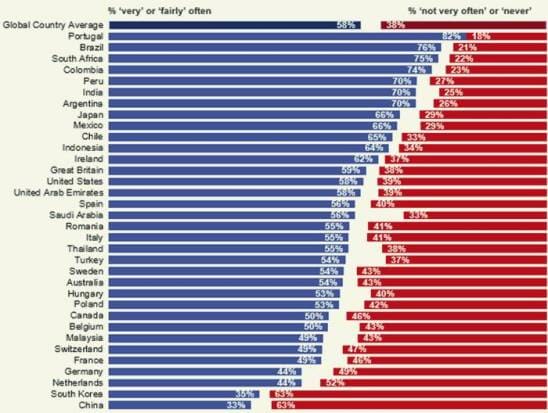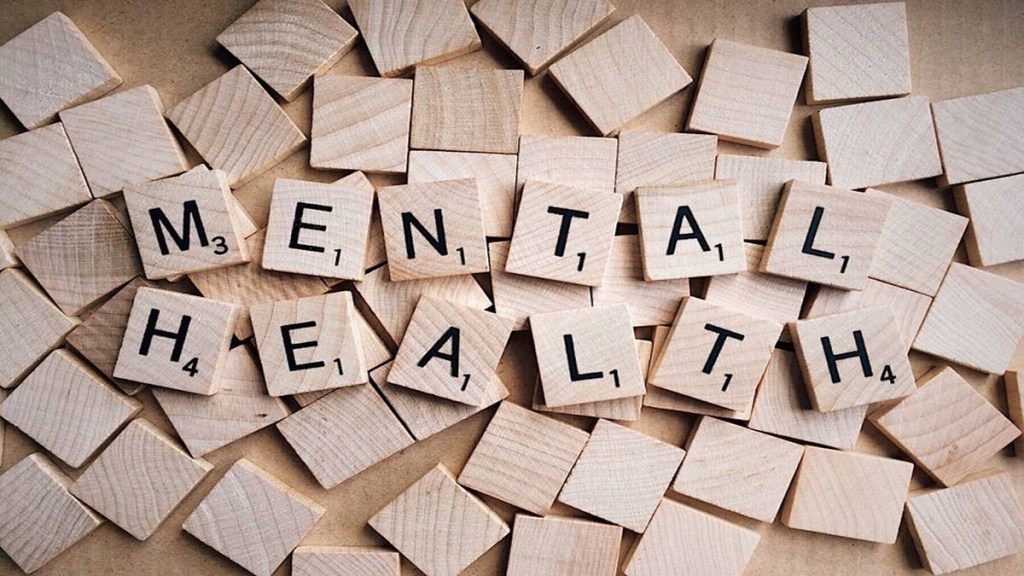This year’s theme being, Mental Health in an unequal world. How often do citizens think about their mental wellbeing? Interestingly, 7 in 10 urban Indians polled (70%) claimed to be thinking about their mental wellbeing often; while 58% of global citizens claimed to think often. Portugal was the highest at 82%, with most thinking about their mental wellbeing.
How often think about mental health.

“The prolonged pandemic of two years was a strain on mental health with increased stress, of the illness lurking and affliction, and of course, the collateral impact on jobs, finances etc., which is bringing Mental Health into the focus and how mental wellbeing too should be addressed,” said Amit Adarkar, CEO, Ipsos India.
“The prolonged pandemic of two years was a strain on mental health with increased stress, of the illness lurking and affliction, and of course, the collateral impact on jobs, finances etc., which is bringing Mental Health into the focus and how mental wellbeing too should be addressed,” said Amit Adarkar, CEO, Ipsos India.
Gauri Pathak, Country Service Line Leader, Healthcare, Ipsos India, echoed similar views, “People have witnessed high levels of uncertainty and insecurity during the pandemic. This has led to increase in mental health issues. At the same time there has been a lot of focus on creating awareness and acceptance about mental health too.”
Also Read | World Mental Health Day: Mindful photography for wellbeing
Mental Health Issues have been impacting urban Indians
Urban Indians are dealing with a host of issues, which have been largely impacting their day to day lives.
37% said, they felt stressed to the point where it had an impact on how they live their daily lives;
36% felt stressed to the point where they felt like they could not cope/ deal with things;
34% felt depressed to the point that they felt sad or hopeless almost every day for a couple of weeks or more;
33% felt stressed to the point they could not go to work for a period of time and
24% seriously considered suicide or self-hurt.
“Mental Health impact has been quite severe for a significant number of urban Indians and they have been confronting a lot of issues which can be eased by communicating or medical help. Notably, a number of respondents are sharing, earlier it was considered a taboo to even mention it due to stigma attached to the topic and misinterpretations,” added Adarkar.
“The impact of mental health challenges, e.g. stress, depression on the lives of urban Indians have been quite significant. While these issues impacted their day to day life, they also skipped work and social gatherings. There is a strong need for employers to understand the sensitivity of this issue and support employee mental wellbeing,” added Pathak.
Remedial measures taken
Urban Indians claimed to have taken some concrete steps to alleviate their mental health issues.
- 39% talked with friends/family about mental health issues/concerns;
- 29% talked with their primary healthcare provider, like a family doctor, about your mental health;
- 29% have taken time off work/school to help a family member/close friend with a mental health issue;
- 28% have taken a medication to help with your mental health, for things like stress, depression;
- 25% have missed a social gathering/family events due to their mental health;
- 24% have talked with a counsellor, psychologist, psychiatrist about their mental health;
- 24% have taken time off work/school to deal with a personal mental health issue ; and
- 10% have posted/ written something online, in social media when they have been feeling stressed, depressed.
Physical Health vis-à-vis Mental Health
3 in 4 urban Indians (75%) think about their physical wellbeing often.
On being asked what holds more priority – Mental wellbeing or Physical wellbeing? 76% global citizens said both are equally important, while urban Indians had split views – 49% saying both are equally important, while 31% prioritized mental wellbeing, 18% chose physical wellbeing over mental.
How does the system in India treat the mental & physical wellbeing? The respondents said it was a mixed bag: 35% believed both mental and physical health were treated equally, 32% felt physical health was given more importance, while 27% mental health was prioritized by the system.
No stark differences seen between perception and experience.
While at the global level the difference was glaring 76% perceived both physical and mental health being equally important, but only 33% claimed the system treated both on the equal footing. 41% believed physical health was prioritized.








